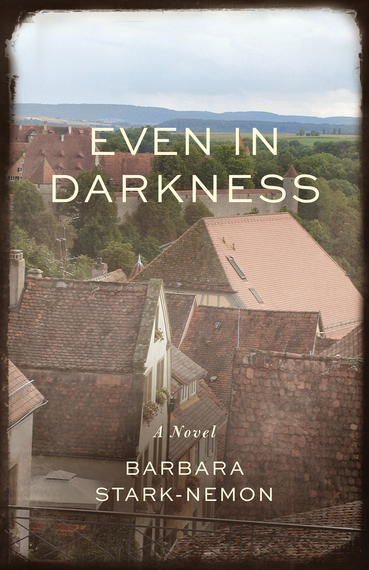With Passover just behind us, and Holocaust Remembrance Day just ahead, Jews with family Holocaust stories have a double opportunity to reflect on their history of bondage, persecution, freedom and redemption. As President Obama recently said of the Exodus story in his Passover greeting to the nation,
the signs and wonders that appeared when hope seemed lost, the Jewish people's abiding belief that they would one day reach the Promised Land -- have inspired countless generations over the years. It inspired Jewish families to hold fast to their faith, even during times of terrible persecution.
The trauma of the Holocaust and the challenges to faith and hope for the future suffered by European Jews are still felt in the families of its victims and survivors. Many second and third generation descendants who are writers, seem to use WWII family experiences as the basis of fictional work. Perhaps we are thereby fulfilling the commandment in the Passover Seder to see ourselves as though we were personally liberated from bondage. My just-released novel, Even in Darkness, falls squarely in this category.
Why are so many of us writing our WWII stories of loss, escape and survival now? And why are we writing them as novels rather than memoirs or biographies? We may be one and sometimes two or three generations removed from the events of WWII, but we are not removed from their impact on our families and our worldviews. Many of us may feel as the writer Saumya Arya Haas wrote in these pages a number of years ago, "The Holocaust is too horrible for me to face full-on... It is just too big. My inadequacy pierces me. There is no way to make sense of it." And, "We have to make things up, to make it comprehensible. Sometimes layers of words, layers of fiction, even, are needed to connect human experience to shared reality."
We have experienced the legacy of the dramatic events and changes of those years, but have often had to dig past reticence and secrecy of family members to mine the memoirs, letters, diaries and personal documents of those who actually lived and died through the 1930s and '40s. We looked for clues to what the dawning realization, the inexorable playing out, and then the aftermath of the horror meant to them. Sometimes we have been surprised, as I was, to find the stories of love and redemption amidst the horror. We have employed the tools of fiction to round out stories when holes in the narrative of those chaotic and terrible times couldn't be filled with research or interviews. Writing fiction gives us the opportunity to pull readers directly into the lives of vivid characters, and plots that can be focused on the themes that best embody our understanding of what happened.
We want to write these stories now because our parents and grandparents are leaving us, and with them go both our last bridges to, and our last barriers against, this devastating history. As the novelist Nomi Eve stated in an interview about why she writes Jewish historical fiction, "I learned early on that the stories my family shared around my grandmother's Shabbos table were as nourishing as the food she prepared." Stephanie Feldman, in the same interview, noted that her ancestors' "history has been lost twice. The war destroyed the communities they came from and the sisters and brothers and cousins they left behind, and their own stories got lost in successive generations of assimilation."
Those of us whose family stories were not lost have been fortunate to have heard and been nourished by the tales of their lives in Europe, however painful. We feel an urgency to preserve and share them. I, for one, do so with fiction -- for its immediacy and because there is so much that I don't and can never know about the realities my loved ones faced.
Writing Even in Darkness allowed me to write my way to an understanding of the Holocaust's impact on my family and on me personally. As Saumya Arya Haas wrote, "I can't experience the reality of the Holocaust but I can walk tenderly alongside ones who did."
For a list of favorite historical fiction that inspired me when working on Even in Darkness, click here

